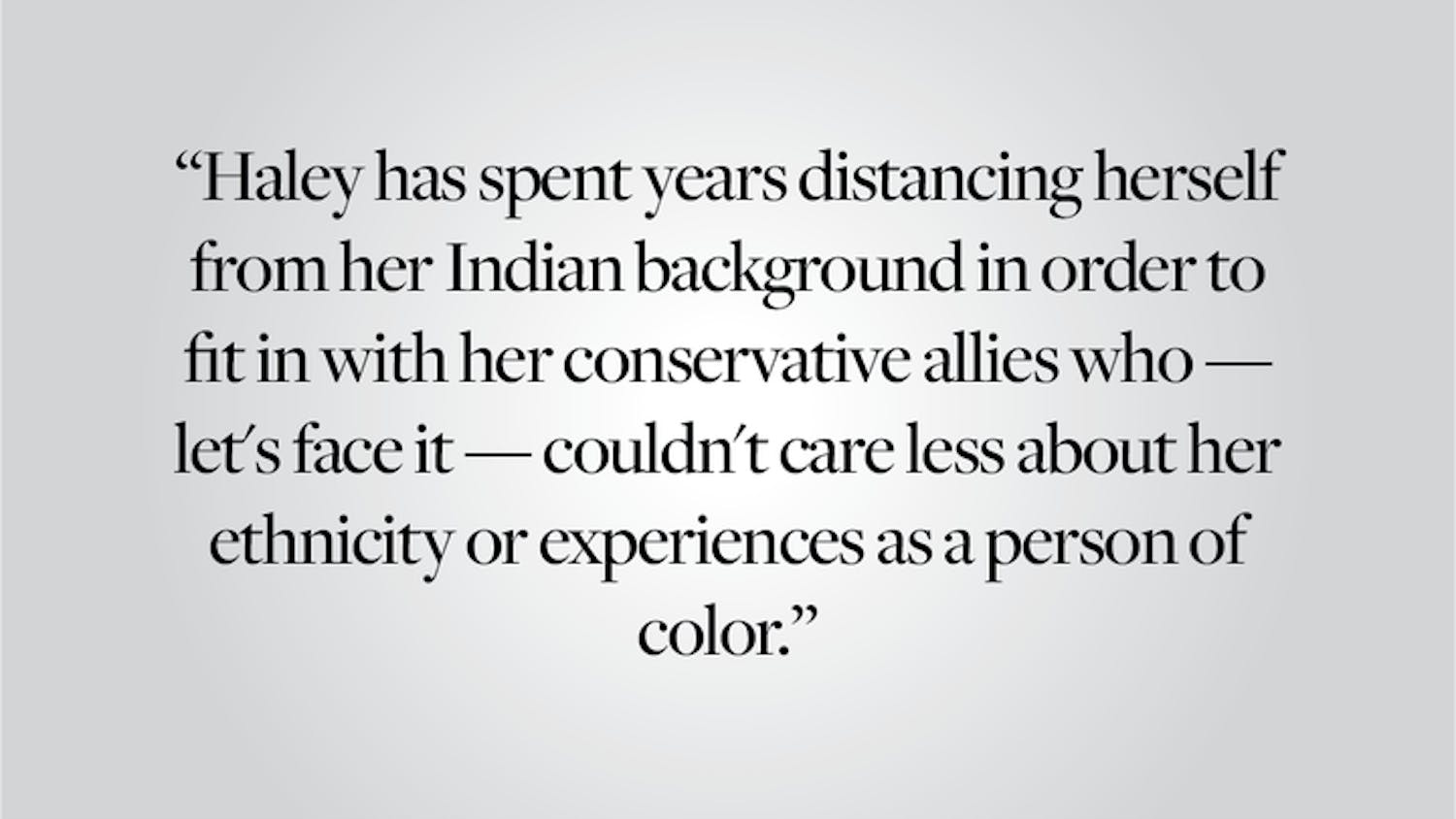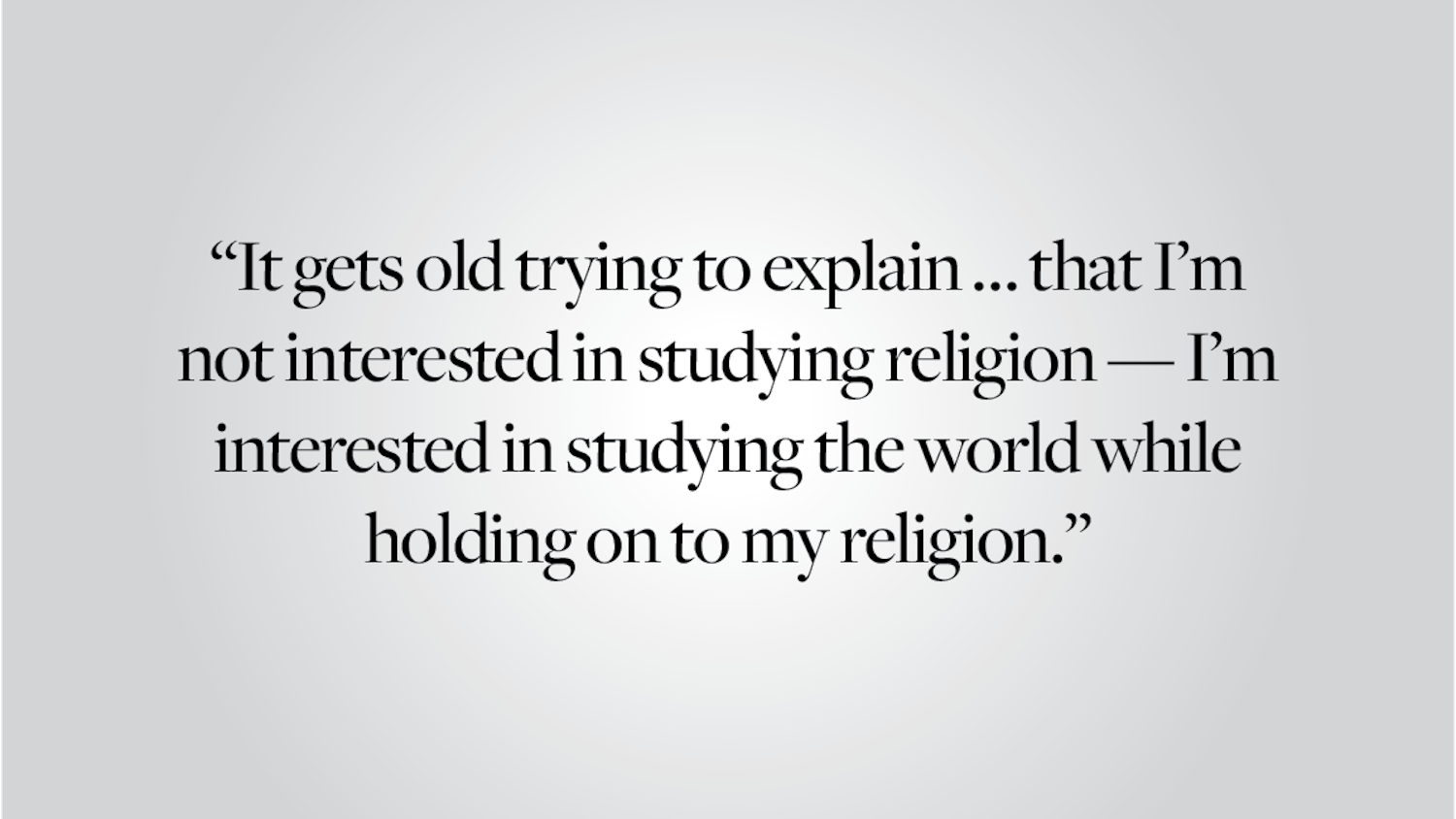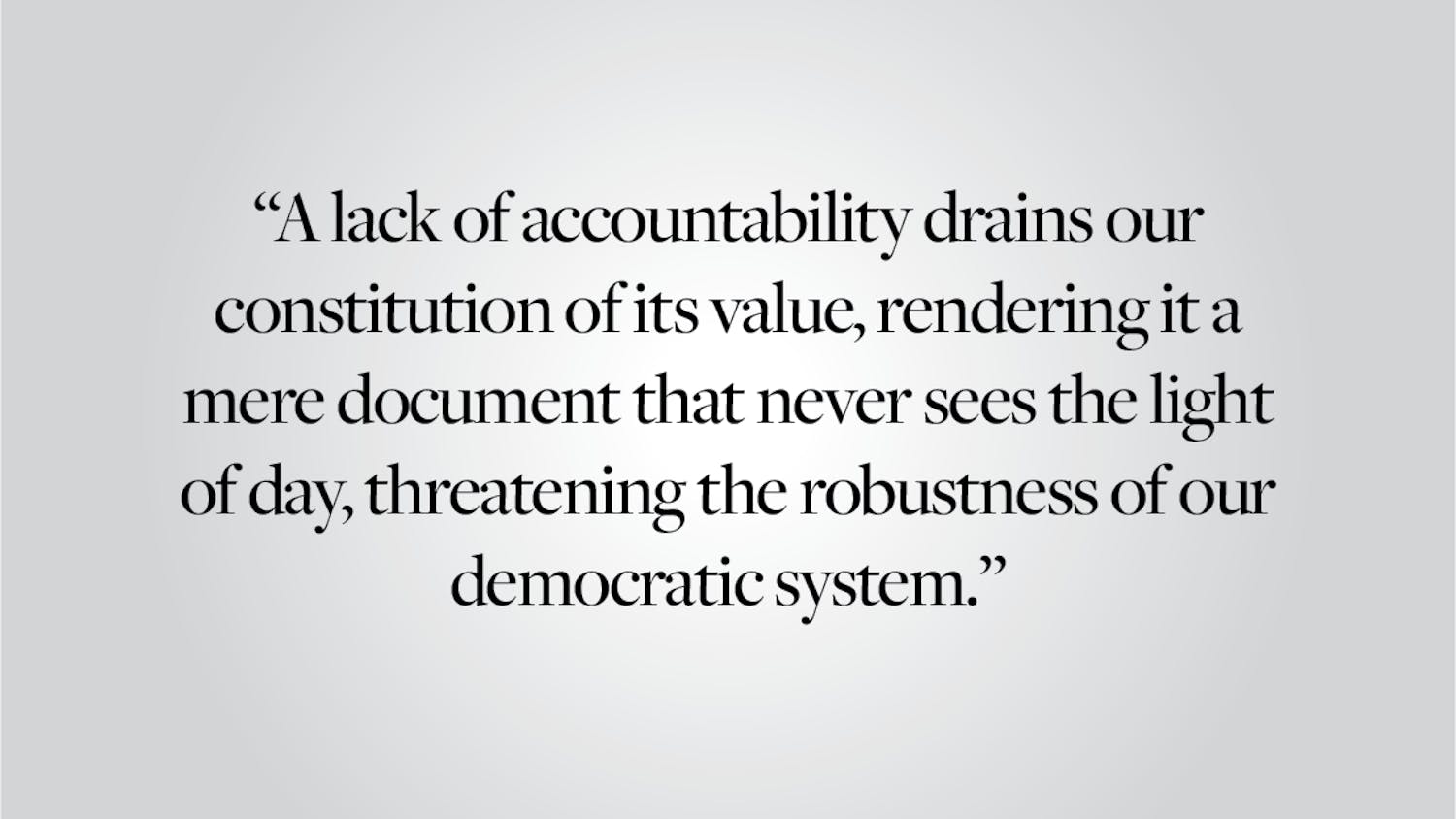I remember the first time I heard the phrase “safe space.” I remember how my ignorance motivated me to research its meaning. Through my explorations, I discovered that a safe space was basically just that — a place to feel safe, a place where you didn’t have to maintain a facade of tranquility when your environment constantly induces unhealthy stress, a place where your very presence — your very humanity — could take a much-needed break, a place you could feel as free as you do in the privacy of your own home.
As a low-income, first-generation student attending a school that has historically served the elite, I immediately sought such a designated space to get a break from my constant anxiety exacerbated by stressful academics, insensitive faculty members and the feeling of isolation. I felt a safe space was a perfect idea and could not imagine how anyone could be opposed to it.
Recently, Matthew Shorter ’17 wrote an op-ed expressing his concerns with the Undergraduate Council of Students utilizing safe spaces, calling for all meetings to be inclusive in the name of fundamental transparency of student government. He writes, “If (UCS President Viet) Nguyen (’17) and other UCS members do not wish to deal with criticism of their views, then they should not have chosen a role in student government in an era where student activism and vibrant debate on college campuses are as prevalent as they have ever been.”
Nonsense.
What Shorter and others who share his sentiments fail to understand — what they do not attempt to understand — is that UCS’s adoption of safe spaces is not about alienating a community, but rather integrating it. When discussing certain triggering topics, confidentiality is paramount. Certain meetings must be closed to the public because students’ personal stories or unedited thoughts are, quite frankly, not open to everyone’s business. But Shorter notes that having confidential meetings “shamelessly disenfranchises community members who are unable to be present due to personal, professional or academic commitments.” He demands that UCS become transparent for fear that decisions without certain voices — particularly those that historically have always been heard — will not be included. The problem with this is that he views disenfranchisement through too narrow a lens. He fails to acknowledge the many voices on campus that do not contribute to these conversations not because their schedule makes it inconvenient, but because of the trauma such discussions can produce.
Additionally, in this particular instance, no executive decisions were made at the meeting. The statement Nguyen released regarding the decision could not be more simply stated: He wanted students to speak about delicate topics without fear of being misheard, without their stories and experiences being publicly and inaccurately displayed. He wanted to encourage involvement from new members in order to ensure that public curiosity to experiences they do not own would not prohibit engagement. This was not about making decisions without community involvement. This was not about reforming UCS to indoctrinate its members and brainwash its students in the name of social justice. It was about safety. It was about recognizing the necessary narratives and perspectives in our student government because the current space that is available is genuinely agonizing for them.
Safe spaces exist because many do not internalize the pain of those who have experienced trauma. It’s easy for us to separate ourselves from adversity that we have not personally overcome. The kid who was never bullied does not understand why name-calling can be so hurtful; the man who never experienced sexual assault may not understand why a rape victim is triggered simply by hearing their attacker’s name; the white kids may never understand why the one black kid in their computer science class feels excluded. But our inability to empathize with pain does not make it any less real. This is why we need safe spaces. And UCS is no exception, regardless of its effect on students like Shorter.
But claiming that safe spaces are a means to escape criticism indicates a fundamental misunderstanding of what they are and who uses them. It isn’t unusual for people to dismiss safe spaces by arguing that they coddle students or protect them from criticism by claiming that safe spaces shield students from polarized viewpoints. But this perspective utilizes a rhetoric of privilege that alienates students who may be paralyzed by trauma to the extent that they cannot engage in these necessary conversations. Their privilege detaches them from recognizing UCS’s decision to incorporate a safe space by believing that only the resilient — only those who are capable in engaging in government — should be the ones in government.
The ridiculousness in this perspective stems from the fallacy in the idea that “if we can do it, so can everyone else!” In other words: If I am comfortable talking about sexual assault and mental health, you can be comfortable! If I can listen to a man advocate racial profiling, you can, too! If I can attend a UCS meeting and speak about troubling matters, you can also come!
Sadly, this false dichotomy between the resilient and the sensitive is far more nuanced. When it comes to fragile topics such as sexual assault, we must remember that trauma affects each of us differently. Simply because one sexual assault victim can overcome their attack does not mean that others can have public discussions without reliving the trauma. Just because a person of color in a predominantly white classroom does not feel reminded of their tokenization and underrepresentation doesn’t mean others do not. Just because one woman may be able to confidently walk down Thayer Street at night without fear of being sexually victimized by a man does not mean that others can. We should not dictate how individuals overcome their brutalization; we cannot in any way micromanage the amelioration of their pain. If they want to rectify a broken system of sexual assault in confidence, so be it, because when we say that a request for privacy is infringing on fundamental transparency, what survivors hear is “my privilege is more important than your trauma.”
The existence of safe spaces, especially in student government, is a vital asset in order to achieve a diverse representation of the issues that occur on our campus. We do not have safe spaces to coddle students; we have them because the space outside of them — a world that reminds some people of their oppression each and every day — is an unnecessary burden that takes a toll. Many may never understand why we need them and will openly repudiate them. To those people, I encourage you to ask why people use them. Ask yourself: What is occurring in our environment — the tangible and intangible — that makes people feel unsafe?
But also respect that people — people of color, women, LGBTQ+ people, victims of sexual assault and other marginalized groups — do not owe you any information.
Gabriel Reyes ’18 can be reached at gabriel_reyes@brown.edu. Please send responses to this opinions to letters@browndailyherald.com and other op-eds to opinions@browndailyherald.com.




